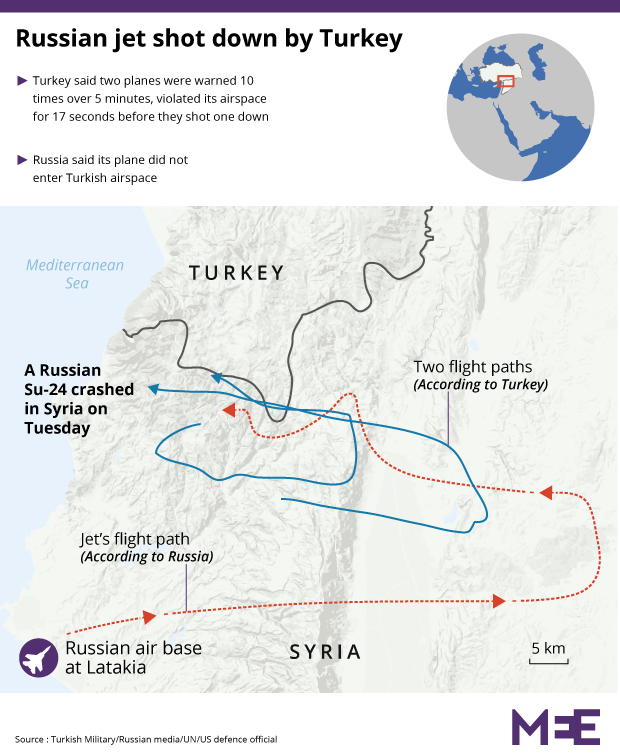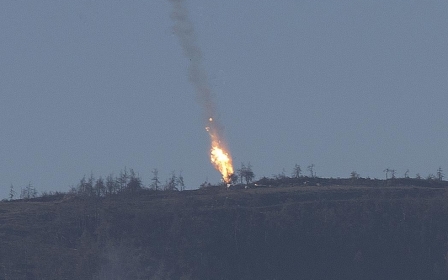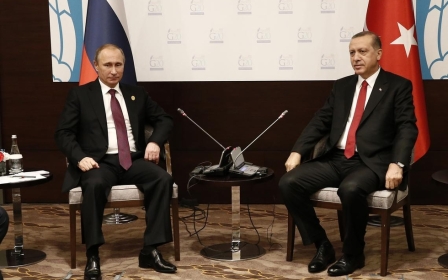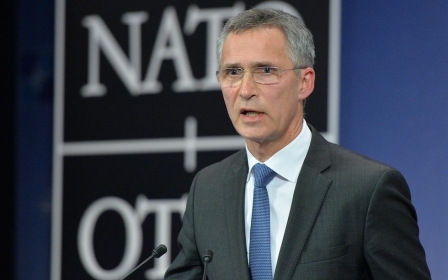Russian airman denies Turkey gave warning before downing jet
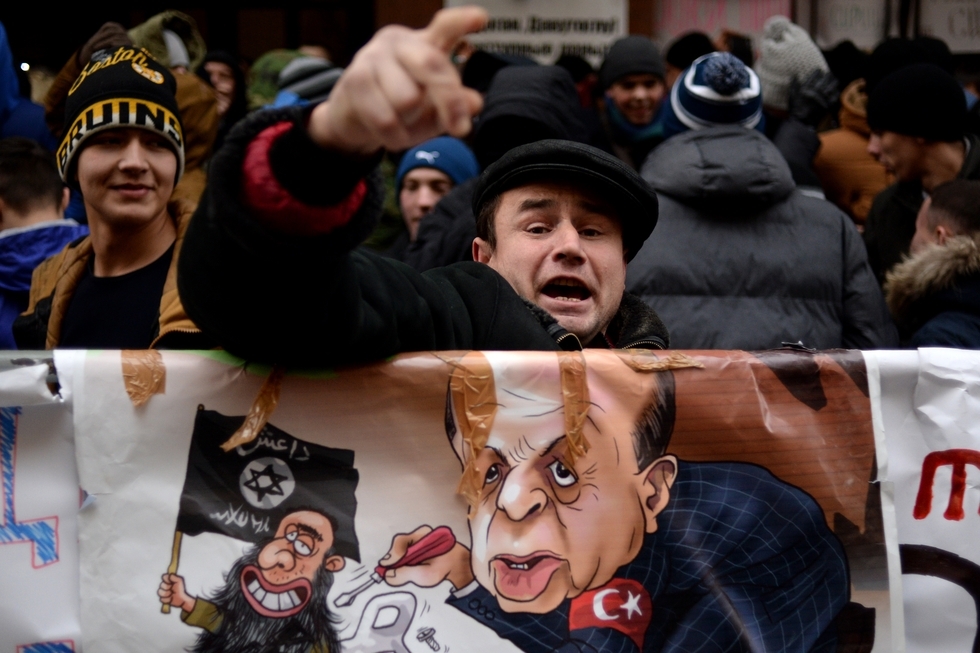
A Russian airman shot down over the Turkish-Syrian border has said there was no warning from the Turkish authorities that he was straying into Turkish territory.
"There was no warning, not by radio exchange nor visually. There was no contact at all," Konstantin Murakhtin told Russian journalists at Moscow's base in Syria following his rescue by special forces.
He added that he could not have accidentally flown into Turkish territory as his crew knew the region “like the back of their hand”.
"I could perfectly see on the map and on the ground where the border was and where we were," said Murakhtin, a navigator. "We were flying at an altitude of 6,000m, the weather was clear."
Murakhtin was one of two Russian pilots who ejected on Tuesday after their plane was hit by fire from two Turkish F-16s for violating Turkish airspace.
The two men crashed into territory largely controlled by Turkmen militias thought to be closely linked to the Turkish state.
One pilot was killed, reportedly by Syrian opposition fighters, while Murakhtin was rescued by Syrian special forces and returned to Russian forces.
The pilot's statement contradicts Turkish statements that the Russian jet had been warned 10 times it was straying into Turkish airspace.
Turkish Prime Minister Ahmet Davutoglu on Wednesday insisted Ankara had no intention of cutting diplomatic ties with Moscow.
However, Russian President Vladimir Putin endorsed a call for Russians to avoid visiting Turkey, a day after calling Turkey an "accomplice of terrorists".
"After such tragic events like the destruction of our plane and the death of our pilot, this is a necessary measure," Putin said in a televised address on Wednesday morning.
His foreign minister, Sergi Lavrov, said the attack was a "planned provocation" but that Russia did not "plan to go to war with Turkey, our attitude toward the Turkish people has not changed".
The rise in tensions between the two countries has led to an outpouring of domestic anger in Russia.
A protest outside the Turkish embassy in Moscow turned ugly on Wednesday when demonstrators began hurling eggs and stones at the building.
Several windows were broken, while demonstrators chanted slogans against Turkish President Recep Tayyip Erdogan.
One placard read: "Turkey you will remain without gas", referring to threats from Russia to cut off gas supplies.
On Wednesday, Russian politician Sergei Mironov announced that his party had submitted a bill to parliament calling for the holding to account of anyone who denied the 1915 Armenian genocide.
"We have just submitted a bill on responsibility for failure to acknowledge the fact of a genocide of Armenians by Turkey in 1915," Mironov, the leader of the opposition Just Russia party, said on his Twitter account.
The subject of the Armenian genocide is very controversial for Turkey, which still maintains that deaths of as many as 1.5 million Armenians during the First World War did not constitute a genocide.
The decision by international bodies and countries to recognise or not recognise the genocide has often been seen to be driven by geopolitical relations with Turkey.
The Turkish government was meanwhile criticised by commentators for its military action.
Highlighting the “most serious tension between Turkey and Russia," Murat Yetkin, wrote in the Hurriyet newspaper: “If Turkey were not a member of NATO, Russia would never allow this incident to go unanswered.”
Yusuf Kanli, also a columnist for Hurriyet, said the attack part of the diplomatic "insanity game” being played by Ankara.
He wrote: "[Turkey's] new rules of engagement … most likely will show Turkey that it is not the braggart of the neighbourhood to dictate to everyone."
Others however praised the Turkish military's actions. In the Daily Sabah, Inur Cevik wrote that Russia’s violation of Turkish airspace was the last straw for Turkey and that the "ordinary Turk" would be feeling "euphoric over this incident”.
New MEE newsletter: Jerusalem Dispatch
Sign up to get the latest insights and analysis on Israel-Palestine, alongside Turkey Unpacked and other MEE newsletters
Middle East Eye delivers independent and unrivalled coverage and analysis of the Middle East, North Africa and beyond. To learn more about republishing this content and the associated fees, please fill out this form. More about MEE can be found here.


